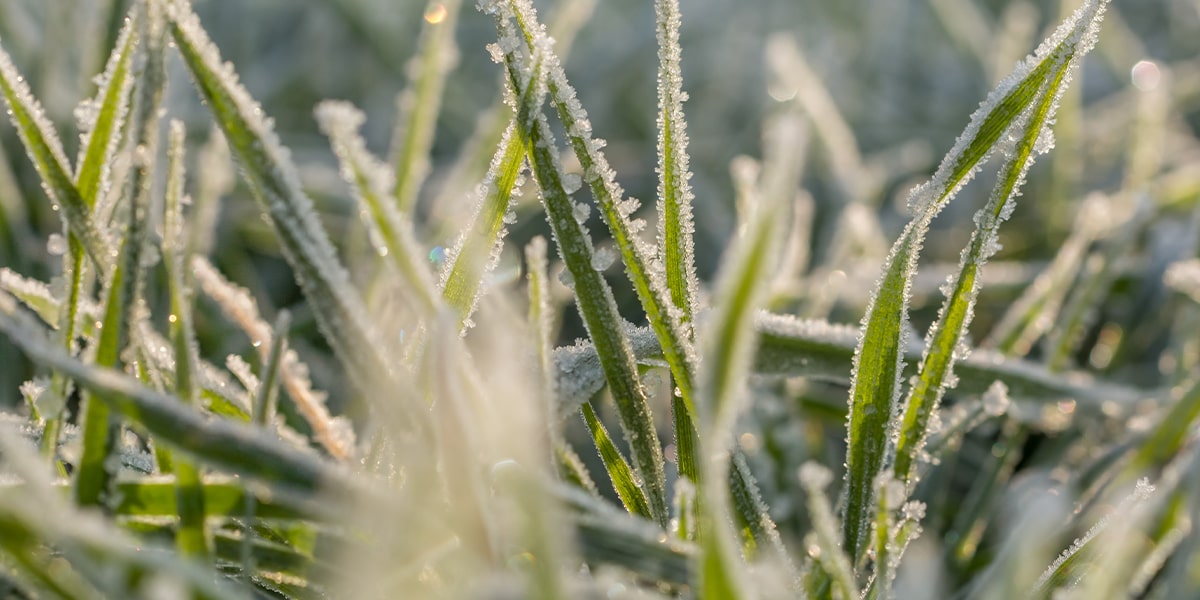
Although many homeowners think winter is a time to stop lawn care, winter lawn care is essential to ensuring you have lush, vibrant lawns throughout the year. Winter is the perfect time to analyze your lawn and soil so you can take corrective measures for any issues. It’s also the season to get your equipment serviced and ready for the spring.
Protecting your lawn throughout the winter will have long-lasting effects. Follow these winter lawn maintenance steps for healthy yards year-round.
Doing proper fall lawn preparation and maintenance is critical to the success of your winter lawn care. During fall, your lawn enhances its roots in preparation for winter. Preparing your soil and doing proper fall lawn care will boost your winter lawn. Here are the five main steps your need to take:
It’s essential to keep your lawn clear of any debris during winter. Toys, fallen leaves and outdoor furniture can suffocate your grass and lead to bare patches. Debris can also create conditions that allow diseases, insects, mice and other damaging pests to flourish. At the start of winter, remove any furniture, toys, branches, leaves or other debris on your lawn. As winter progresses, continue sweeping away leaves and picking up fallen limbs.
The weight from any debris compacts your soil and stunts the growth of your grass. It’s best to discourage people from walking on your lawn or parking any vehicles there. Keeping your sidewalks clear of snow and ice will make visitors less likely to take shortcuts across your property.
Avoid piling too much snow on your grass when shoveling your sidewalk, pathways and driveway, especially if you’ve used deicing salt. Salt can damage your lawn and undo the hard work you’ve already put into your lawn. Try using calcium-based deicing salt mixtures, as they’re less harmful than sodium chloride-based salts. It’s also best to avoid deicers with urea or nitrogen as those ingredients can also damage your lawn.
Winter is the ideal time to take stock of your lawn equipment and make any necessary repairs. Take the time to change filters, sharpen blades and properly clean your equipment, and store all your gear in a clean, dry space that is not near a heat source.
Cleaning and disinfecting lawn equipment can prevent the spread of diseases from old clippings when you start your spring lawn maintenance. Clean equipment also works better and lasts for longer.
You’ll need to winterize any gas-powered lawn equipment, as leaving fuel in the tanks can cause significant damage to the engines. You can deal with excess gas in the following ways:
If you have a sprinkler system, you may need to hire a professional to winterize the system. Disconnecting water sources and removing any water in the system will prevent ruptures from freezing water. Ensure you disconnect any hose pipes, drain them of water and store them safely. You’ll also want to switch off the water supply to any outside faucets without frost protection.
Winter is one of the best times to correct your soil’s pH by adding lime, sulfur or fertilizer. You can test its pH and nutrient content to start preparing your soil for spring.
While you’ll handle most of your weed control in the spring, you can get a head start in winter. Spraying pre-emergents will prevent weeds that germinate in the fall from taking root. Before it gets too cold, dig up weeds and use an herbicide to spot-treat any weed-heavy areas.
If you live in a warmer area, you can continue your lawn care as you have for most of the year, with a few slight variations. Since yards in warmer regions don’t experience a total shutdown like cold-region lawns, your winter lawn care will be slightly different:
Having a beautifully green lawn is the pride of many homeowners. At OrganicLawns, we have an in-depth understanding of the care your lawn needs every season, and our team of hands-on lawn specialists can help you maintain your yard year-round.
Fall is the best time to take advantage of our Maryland aeration and seeding services! We also offer weed control and annual soil testing services to help maintain your lawn. Browse our service packages for Maryland winter lawn care, or get a free quote today!